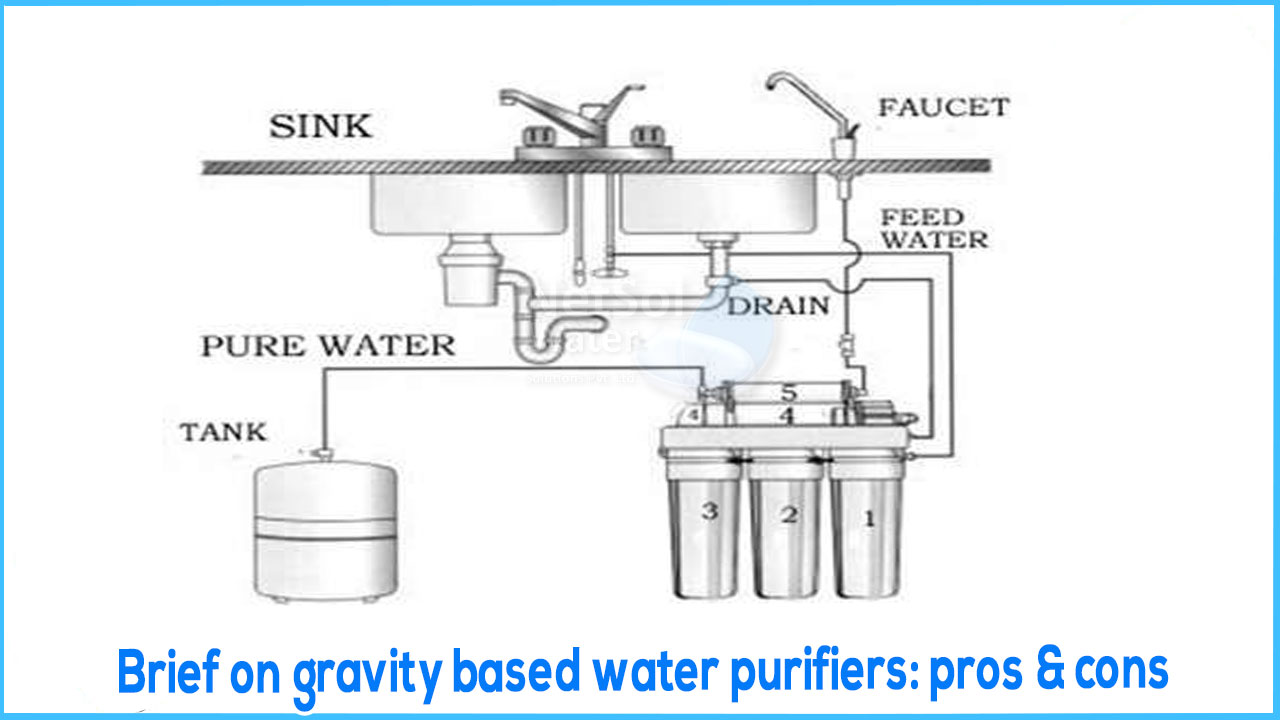Water is necessary for all living things, and we are all concerned about the safety of our drinking water. We all know that the quality of your drinking water reflects your overall health. People's awareness is increasing the popularity of water purifiers.Gravity filtration is a method of removing contaminants from solutions by pulling liquid through a filter using gravity. Gravity and vacuum/suction filtration are the two most common types of filtering employed in laboratories. Gravity filtration is commonly employed in chemical laboratories to filter precipitates, drying agents, unacceptable side items, and leftover reactants from precipitation operations.Water flows from the upper chamber to the bottom vessel by gravity pressure in this purifying process.Activated carbon or a UF & Microbiological filter kit are used in this purifier. It is a basic and straightforward water filter.
WHAT IS THE MECHANISM OF THE GRAVITY-BASED WATER PURIFIER?
Gravity-based water purifiers do not require electricity, instead, activated carbon or ultrafiltration (UF) is used. Activated carbon is a substance made up of tiny carbon granules that absorb pollutants in water. UF is made up of a slew of hollow membrane fibers. Impurities attach to the water as it travels through these hollow fibers.This simply implies that water is filtered using gravity alone, from a higher to a lower position, without the use of any external force.
The major advantage is that gravity-based water purifiers do not require energy to operate. Water flows naturally from the top container to the bottom compartment.Fiber mesh is a type of cloth that is used to eliminate visible dirt and other particles. The Activated Carbon Module (essentially, this is similar to our forefathers' charcoal water filtering) removes any remaining dirt, parasites, and pesticide pollutants. The polisher modules then remove any undissolved chlorine or chemicals.
In addition to these modules, some gravity-based water filters include UF technology. This is essentially a UF Membrane-based filtration method. The pores on the UF Membrane are 0.1 microns in diameter, which is small enough to filter out bacteria as well as other microorganisms like cysts. Overall, gravity-based filters produce water that is superior to boiled water and safer than chemically cleansed water. This is the perfect purifier for municipal or corporation water that has already been chemically cleansed and does not contain many dangerous contaminants such as arsenic because it originates from running water.
PROS OF GRAVITY BASED WATER PURIFIERS:
- ~ It operates without the use of power.
- ~ The use of a gravity-based water filtration system aids in the removal of dirt and other particles.
- ~ The gravity-based water purifier aids in the removal of potentially hazardous contaminants.
- ~ It is capable of absorbing all types of pollutants found in water.
- ~ Pesticide contaminants and even parasites can be removed using gravity-based water purifying devices.
- ~ It's also capable of removing turbidity.
- ~ When compared to boiled water, gravity-based water purifiers give the purest water.
- ~ They can be had for a minimal cost.
- ~ They're not only simple to use and clean, but they're also low-maintenance.
- ~ The water purifier will not need to be cleaned on a regular basis.
CONS OF GRAVITY BASED WATER PURIFIERS:
- ~ Heavy metals are not filtered.
- ~ It is not as effective as UV purifiers at removing disease-causing bacteria.
- ~ Low rate of flow
- ~ Water with a high TDS level is not recommended to be purified by this method.
- ~ To avoid recontamination of the tank, it must be cleaned on a regular basis.
- ~ Both the chemical batteries and the activated carbon filter must be replaced on a regular basis, resulting in substantial maintenance expenditures.



